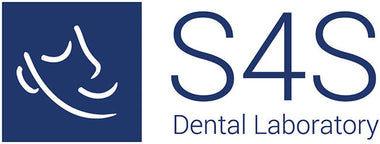WHAT'S CAUSING YOUR JAW PAIN?
Jaw pain is an uncomfortable and frustrating experience, affecting everyday tasks such as chewing food and speaking. While occasional discomfort may seem harmless, persistent jaw pain often indicates an underlying issue that needs attention.
One of the primary causes of jaw pain is bruxism—the habitual grinding or clenching of teeth. In this article, we’ll delve into how bruxism leads to jaw pain, what causes this behaviour, and the steps you can take to alleviate the symptoms.
What causes bruxism?
Bruxism can be triggered by a variety of factors, ranging from psychological to physical causes. Stress and anxiety are among the most common reasons people develop this habit. During times of high stress, many individuals unconsciously clench their jaw or grind their teeth as a way of coping with tension.
In some cases, an irregular bite or misalignment of the teeth can also contribute to the development of this condition. When the upper and lower teeth don’t align properly, it can create additional stress on the jaw muscles, which exacerbates the grinding habit. Those with sleep disorders such as obstructive sleep apnoea or sleep paralysis may find that they are more susceptible to bruxism as well.
Why does bruxism cause jaw pain?
Bruxism typically occurs at night, though it can sometimes happen during the day as well. For many, it’s a chronic issue that can lead to significant wear and tear on the teeth, as well as intense muscle tension in the jaw. The constant pressure placed on the jaw muscles and joints can eventually result in pain that spreads throughout the jaw, neck, and even the shoulders.
The relationship between bruxism and jaw pain essentially lies in the constant overuse of the jaw muscles. Flexing a muscle for hours on end will cause it to become sore and fatigued, which is what happens to the muscles in the jaw during episodes of bruxism.
As these muscles, as well as the temporomandibular joints (TMJ), work harder than they’re meant to, they become inflamed. This can lead to stiffness, soreness, and even sharp pain. This is especially the case upon waking in the morning.
If left untreated, the constant stress on the TMJ caused by bruxism can lead to a more serious condition known as TMD (Temporomandibular Joint Disorder). This disorder affects the hinge-like joint that connects your jaw to your skull, and can result in chronic pain.
How can bruxism be treated?
For those experiencing jaw pain due to bruxism, one of the most effective treatments available is a Sleep Clench Inhibitor (SCi). The SCi is a small, custom-made device designed specifically to reduce the forces exerted by clenching and grinding during sleep. It works to reduce the side effects of bruxism, offering long-term relief from jaw pain and preventing further damage to the teeth and jaw joints.
Unlike traditional nightguards, which simply provide a barrier between the teeth, the SCi actively works to reduce the intensity of muscle contraction, relieving the pressure on the joints and surrounding muscles. Since it’s made bespoke to fit each patient’s mouth, the SCi offers maximum comfort and effectiveness.
Seeking help for jaw pain
Persistent jaw pain should never be ignored. If you regularly wake up with a sore jaw, headaches, or notice wear on your teeth, it’s important to seek a dentist’s advice.
Early intervention is key in preventing long-term damage to the teeth and jaw joints. The longer bruxism goes untreated, the greater the risk of developing conditions such as TMD, which can cause more severe and lasting pain.
If you're experiencing jaw pain, find your nearest SCi provider for more information on getting started with treatment!
